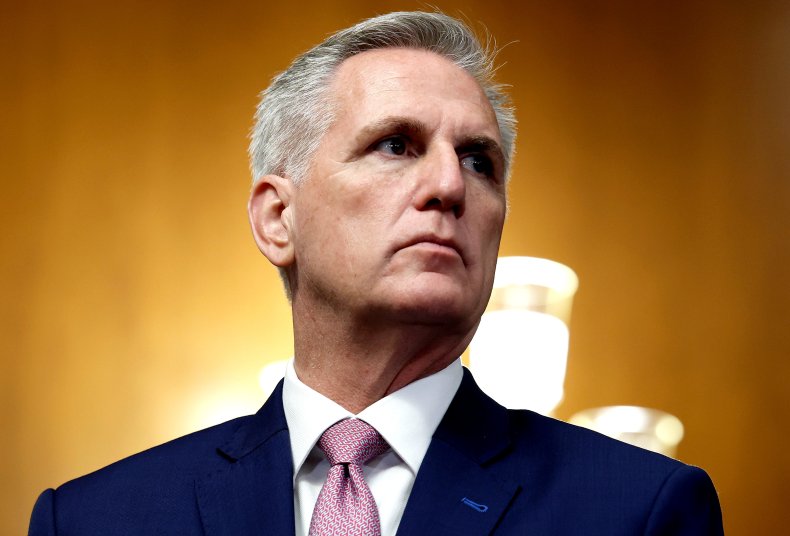Conservative hardliners in Congress on Monday listed their red lines as negotiations ahead of a looming showdown over government funding in the coming weeks.
Congressional leaders are working to strike a deal to secure government funding for the next fiscal year, which begins October 1, 2023. This leaves Congress until September 30 to reach an agreement on funding and avert a government shutdown. House Speaker Kevin McCarthy, a California Republican, has proposed a stopgap funding package that would extend current levels of federal funding to December so lawmakers have more time to negotiate a package, according to the Associated Press.
The House Freedom Caucus, a coalition of the most conservative members of the House, voiced opposition to such a move in a statement released Monday morning, in which they also outlined their demands to support any government funding bill.
The caucus wrote that supporting McCarthy’s measure would be an “affirmation” of the current funding bill, passed last year when Democrats still held control over the House.

Anna Moneymaker/Getty
“In the eventuality that Congress must consider a short-term extension of government funding through a Continuing Resolution, we refuse to support any such measure that continues Democrats’ bloated COVID-era spending and simultaneously fails to force the Biden Administration to follow the law and fulfill its most basic responsibilities,” the statement reads.
The Freedom Caucus laid out several red lines that would deter their support for the funding bill.
These lawmakers would refuse to support any bill that does not include the Secure the Border Act of 2023, address “weaponization” and “political witch hunts” of the Department of Justice and Federal Bureau of Investigations, and “woke policies” in the Pentagon, according to the statement.
Additionally, the group of conservatives will oppose “any blank checks for Ukraine in any supplemental appropriations bill,” the statement said.
Newsweek reached out to Speaker McCarthy and Senate Majority Leader Chuck Schumer’s offices via email for comment.
Split control of Congress means that any funding bill will need to receive bipartisan support from both Democrats and Republicans. The Freedom Caucus’ demands would almost certainly face opposition from Senate Democrats, who also must agree to a bill to fund the government.
Despite conservative opposition to a motion to extend the current levels of funding into December, this appears to be a point of agreement between McCarthy and Schumer, a Democrat from New York.
“I thought it was a good thing that he recognized that we need a [continuing resolution],” Schumer told reporters earlier this month, according to the AP. “We hope that our House Republicans will realize that any funding resolution has to be bipartisan or they will risk shutting down the government.”
The Freedom Caucus has sparred with McCarthy since he took the speaker’s gavel earlier this year. Several of its members refused to back him in the speaker’s race, leading to voting that lasted several days before he finally won enough support while making some concessions to the group of conservatives.
McCarthy also faced criticism from Freedom Caucus members after he brokered a deal with President Joe Biden to avert defaulting on the national debt in May.







